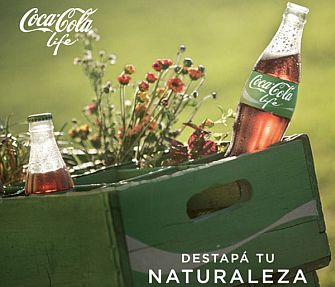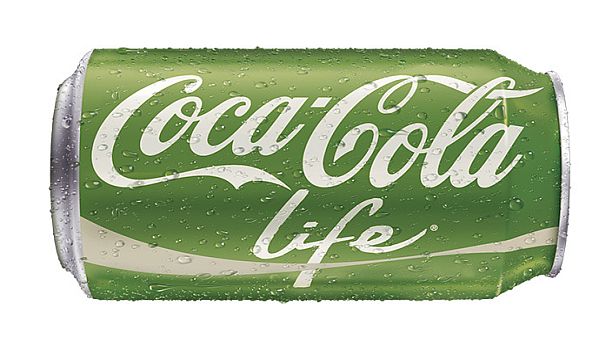Mexico City, Mexico — Coca-Cola Co. is introducing a mid-calorie cola here in its second-biggest market by sales volume and a country that's struggling to shed the pounds.
Mexicans drink more Coca-Cola products per capita than consumers in any other country, so the company's introduction of Coca-Cola Life, sweetened in part by the stevia plant, may be of some importance in a country battling obesity and a rise in diabetes and related health problems.
Coca-Cola Co. is leaning heavily on nostalgia to lure over-age-30 Mexicans to the soda. Coca-Cola Life was rolled out in Argentina and Chile during 2013, and in the United Kingdom this year. The soda will arrive on Mexican store shelves by September, roughly coinciding with its entry into the US.
According to Bernstein Research, Mexico represents about 5 percent of Coca-Cola's global annual sales.
The product comes at a challenging time for the soft drink company in Mexico, where carbonated beverage sales are shrinking because of a new tax on sugary beverages.
"Consumer tastes around the world evolve," says José Luis Basauri, director of the Coca-Cola brand in Mexico, "so Coca-Cola must evolve with them. There are consumers who are looking to reduce their calorie intake, whether through food or beverage," he says, calling Coca-Cola Life an "additional option" to diet drinks for calorie-counting consumers.
 |
One 12-ounce can contains 64 calories and 16 grams of sugar, about half the calories as regular Coke.
Mr. Basauri said that Coca-Cola Life tested well among Mexicans, both in terms of its concept and flavor, with 30-somethings most keen to buy it. Apart from deploying only natural sweeteners, the soda's plastic bottles will be made of 30 percent plant resin for a more environmentally friendly feel.
Coke's advertising campaign features young people kissing and phrases like "Remember when you dared to try new things?" and "Remember when you were natural?" The song in the TV ads, Sixpence None the Richer's 1997 hit Kiss Me, could even evoke memories of carefree younger days for the soda's target groups, generations X and Y.
The lighthearted sales pitch comes as more than 9 percent of Mexican adults have been diagnosed with Type 2 diabetes, according to a 2012 government health survey, with the frequency topping 19 percent for Mexicans over the age of 50. Nearly three out of every four adults are overweight.
Alarmed by the rising costs of treating ailments related to excess weight, the Mexican government slapped special taxes on sugary beverages and calorie-dense snacks in January. Coca-Cola Life would still be subject to the soft drink tax of one Mexican peso (eight US cents) per liter, because it contains sugar.
Carbonated beverage sales for Mexico's biggest bottler, Coca-Cola Femsa, fell by 6.4 percent on the year in Mexico during the first half of 2014. The bottler blamed the slide on the soft-drink tax, as well as on bad weather and a weak economy.
Fellow Mexican bottler Arca-Continental's sparkling drink sales in Mexico dropped 4.7 percent for the same period.
Coca-Cola officials argue that there's no reason to single out their products as driving Mexico's health problems. "All calories count," says Laura Tamayo, vice president of corporate affairs for Coca-Cola Mexico. Ms. Tamayo cited a lack of exercise as a major issue in Mexico.
While Mexicans consume more Coca-Cola products per capita than anywhere else, low-calorie options account for very little of those sales. Coca-Cola Femsa recently pegged Diet Coke as bringing in less than 4 percent of its total Mexico sales. Arca-Continental figured this year that low-calorie and zero-calorie options account for under 10 percent of its beverage sales in Mexico, calling that percentage "small" compared with other countries.
Original Story


